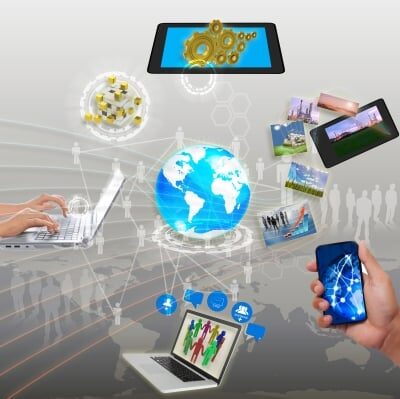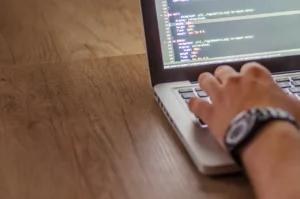
Eric Schmidt, who was CEO of Google, uses a very graphic image of what this growth means. ocean of data when he affirms that until 2003 were created 5 exabytes of information from the dawn of civilization to just a decade ago. At the moment, despite this, much more information is generated every two days, and the rhythm is unstoppable.
The virtual world where everything is connected to everything, not only to people but to the machines themselves by means of devices and sensors, brings us a digital revolution that has a clear and deep dimension"Dimension" It is a term that is used in various disciplines, such as physics, Mathematics and philosophy. It refers to the extent to which an object or phenomenon can be analyzed or described. In physics, for instance, there is talk of spatial and temporal dimensions, while in mathematics it can refer to the number of coordinates necessary to represent a space. Understanding it is fundamental to the study and... humana still hard to establish.
“People are not prepared for the technological revolution that is going to affect them, in which they will be immersed”, predicts Schmidt, referring to the birth of an interconnected society or the Internet of things that will transform the daily lives of humans. beings in the near future.
The face and the cross of Big Data
The very concept of Internet of Things It is not new. The term was coined by Kevin Ashton in 1999, a researcher at the Massachusets Institute of Technology (WITH), anticipating a phenomenon later incipient, of unstoppable growth.
As some experts say, the planet has developed suddenly some kind of nervous system powered by the new electronic pulse coming from those hundreds of millions of internet-connected devices, where social networks also put people in contact to exchange information.
To 2015 it is estimated that there will be around 6 billion connected devices to the web, and the number will have quintupled to 2020, according to Gartner. will be gigantic, almost omnipresent the network of objects that can communicate autonomously, able to make smart decisions, record our habits and, in summary, make life easier.
Among other similar studies, a report by the consulting firm McKinsey indicates that the Internet of Things will be one of the technological phenomena of greater impact in the near future. The consequences of measuring, analyze and visualize what is happening in real time, to be able to process large amounts of data is unprecedented in the history of mankind, and its effects will have a revolutionary impact on our lives, both positively and negatively. .
The birth of an interconnected society promises a happy world that outlines a future in which home automation systems will work remotely and in connection with social networks.
Help to The science advance in the most diverse areas, which will allow from diagnosing diseases or preventing epidemics to, as an example, achieve spectacular results thanks to the massive analysis of statistics in the most varied fields, What sports, politics, industry the marketing.
But not everything is rosy. The new approach provided by Big Data, that “third Eye”, as defined by Rick Smolan, author of the book The human face of Big DataIt also has a dark side that has little to do with innovating and making the most of products, improve our health, manage our cities or have a more comfortable life.
An uncertain future
If on the one hand the Big Data helps us to see things in a whole new way, to face the “challenges, challenges and problems afflicting humanity as a result of misinformation ", according to Smolan, instead this same light is filtered by black clouds that threaten a storm.
In the same way that data grows exponentially and its potential increases when using it to make better decisions, also does the risk of misuse of the same. We are not immune to security concerns, risk of hacking or intrusion into privacy in the purest Orwellian style, supervised by the big brother eye, and there are many examples of the use of information to the detriment of people.
In this aspect, Big Data es “double edged sword”As Paul Marsden states, psychologist specialized in digital strategy. The new rules of the game give us the reins of our life “, and this is linked to well-being and happiness“but at the same time” Internet of things takes power away from people “, and that deprivation of power is related to frustration and anxiety, says the expert.
The future is contradictory and, fundamentally, uncertain, but one thing is true: the internet of things “it's here, it's not science fiction”, remember James Kirkham, Managing Partner of Leo Burnett. “The next big step it is to know how sellers take advantage of it and how citizens welcome it ", concludes.
Related Post:
Image source: Nutdanai / FeeDigitalPhotos.net
(function(d, s, id) {
var js, fjs = d.getElementsByTagName(s)[0];
if (d.getElementById(id)) return;
js = d.createElement(s); js.id = id;
js.src = “//connect.facebook.net/es_ES/all.js#xfbml=1&status=0”;
fjs.parentNode.insertBefore(js, fjs);
}(document, ‘script’, 'facebook-jssdk'));






